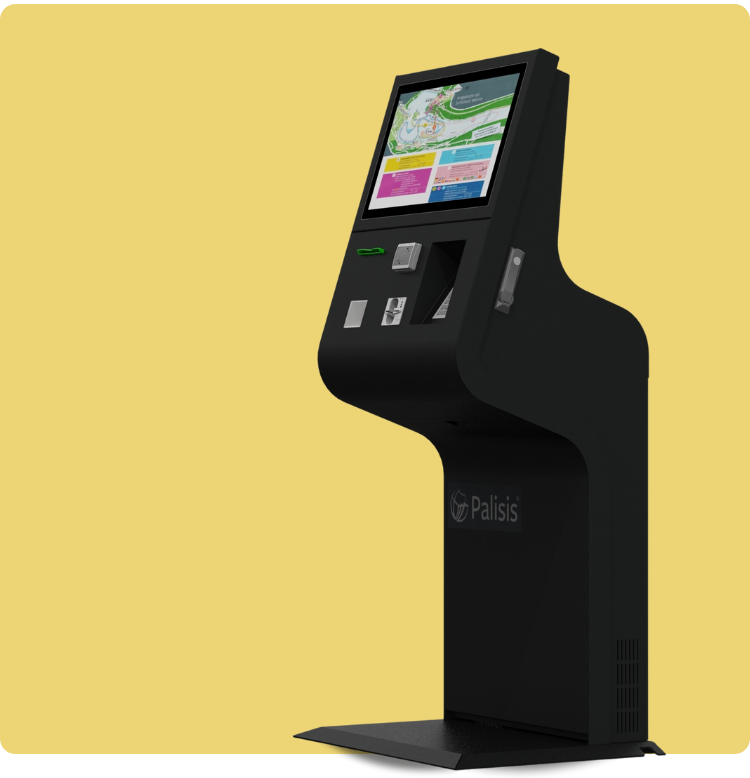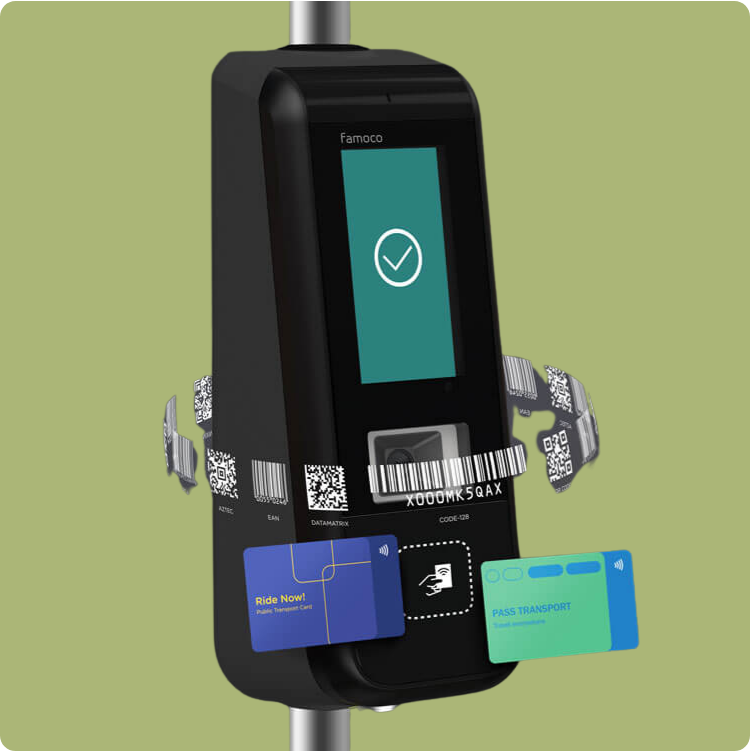Travel ticketing is an area that is changing with technology. For years, you paid your money and got handed a stub that was punched or torn when it was validated. With the introduction of QR codes, mobile phones and mobile, internet-connected validators, that has changed. It also covers a lot more than just the ticket. So, what is travel ticketing for tour operators?
Issuing a travel ticket is the final part of a sale that confirms that a customer has a reservation for a tour. At this point, the payment details will be confirmed, a seat or place on a trip will be reserved, and the ticket will be delivered to the customer.
With the advent and development of modern booking systems, such as Palisis, for tour operators, this is now an efficient and secure process where many stages that used to be carried out on pen and paper are handled automatically. These also allow tour operators to sell tickets online and through online travel agencies and other third parties. All necessary details will stored in the system.
Legal responsibilities regarding travel ticketing
A ticket is a contract that proves someone has purchased a reservation for a service, which is usually a form of transport, event or travel. In most jurisdictions, there will be laws that cover ticketing to protect both consumers and companies. In the UK, for example, consumer laws cover fair pricing and transparency, accuracy, cancellation and rescheduling, resale, fraud, and enforcement and remedies. This will be similar to many countries, which will provide relevant guidance. Tour operators should have a strong knowledge of what their legal responsibilities are when they sell a ticket.
Fair pricing and transparency means that tour operators must provide information about the full cost of the ticket before purchase, including any fees, such as booking fees or service charges.
Accuracy relates to the descriptions of a trip. Misrepresentations or misleading information included can be considered a breach of contract.
There are instances where a tour operator’s terms and conditions can affect cancellations and rescheduling of a trip. These must be specific and meet consumer law. A guest must be informed promptly when a tour is rescheduled or cancelled. In most cases, they will be entitled to a full refund if there is a cancellation.
Ticket resale restrictions are more likely to apply to large events and concerts. However, operators can restrict the resale of their tickets if they wish, or they can specify that only certain platforms can be used. These restrictions must be communicated clearly and cannot be excessive.
Fraud is something that some tour and activity operators will have had a problem with. You can implement reasonable measures to prevent this and protect your guests. These include adding security features to tickets, using secure online ticketing platforms, and implementing verification procedures.
If a tour operator is found to be in breach of these, a customer may approach one of the consumer agencies or take legal action to find a remedy. The first action they should take is to complain to the operator.
Who is the ticketing agent?

For all ticket sales, the staff member a customer buys their ticket from is called the ticketing agent. This is also legally defined and can be used in restrictions. For example, if you are combatting fraud, you can state that tickets are only valid if they are purchased from one of your ticketing agents.
Often an in-person ticketing agent will carry out many roles, such as inspiring the customer to purchase the ticket and carrying out customer service. This is not always the case in high-volume businesses where customers know what they want to purchase when they reach the desk.
Ticket sales can also be made through the back office — over the phone or by email. Ticketing agents in these cases will have similar responsibilities to in-person agents, as well as those related to confidentiality. For example, if a customer is making a card purchase through the back office, these details must be kept secure at all times.
Regarding direct online sales, the company will be acting as the agent. Your website will carry out the role of the inspirational salesperson, and your business will assume the legal responsibilities of the agent.
Online travel agencies and B2B resellers are defined as secondary agents. This can be quite a slippery area legally, and the agencies take advantage of this. However, in general, they are reselling tickets that you have provided to their customers. When entering into a partnership with any secondary agent, check who is the merchant of record. In many cases, but not all, this will be the reseller. The merchant of record is the business that is responsible for all payments and liabilities.
Advantages of using a booking system
For many tour operators, computer-based ticketing has taken over from pen and paper, although not all. Booking systems, such as Palisis, and online sales, whether direct or indirect, have become an important part of the revenue stream in tours and activities. While walkups and in-person sales are still important, they are a smaller proportion of the pie, and many of these will be fed directly into the booking system.
Booking systems, also known as reservation systems or res-tech, are designed to act as the single source of truth for your tour operation. These will gather all the information required for ticketing, whether online or in-person, accept and handle payments, and issue the tickets. Some, such as Palisis, will also carry out other functions, such as staff management, analysis, and partner invoicing.

In-person sales can be carried out using a contactless point-of-sale (POS) device connected to the reservation system. This can be handheld, desktop, or a self-service kiosk in the office. All the information required will be entered before the sale. This can be set up differently for different tours. You may need a waiver, for example. Once the sale is complete, the POS will print the ticket with any security features you have set in the system.
Direct online sales will be carried out through your website. This will be connected to your booking system, and the information fields for each tour will be displayed to the customer. The transaction will be fully secure. After the transaction, the booking system will email the tickets to the email address provided.
Back office sales — over email or phone — can be entered directly into the booking system, and after the sale, it will email the tickets to the customer.
Your reservation system should connect to the major online travel agencies (OTA) through a secure connection called an API. This will transfer any ticketing requests the OTA has and confirm the sale. The OTA will handle the ticketing but will update your system automatically.

If you sell tickets through B2B resellers or other third-party agents, these can connect to your reservation similarly or through a ticketing portal. Some B2B resellers and third parties will carry out the ticketing function, while it may be your responsibility in other cases. Remember to check who is the merchant of record to know who is responsible. This can be set in your booking system. Tour and activity operators selling tickets through multiple OTAs and resellers should use a channel manager, such as TourCMS, to ensure they have the right API connections and extra analysis they require.
With every online and offline point-of-sale connected to your booking system, each reservation will automatically updated. This will ensure that no trip can be oversold and that staff and vehicles can be effectively managed. Many OTAs now insist on live availability, where they know exactly how many tickets are left to sell. This is possible as every ticket is sold automatically updates in your reservation system database.
Validation of a ticket

Validation is the process through which the ticket is accepted, and the guest begins the tour. Before security features were added, it was relatively easy to create a fake ticket or for a staff member to commit ticket fraud. While still possible, it is now more difficult.
The same handheld devices that are used as points-of-sale come installed with barcode and QR code readers. These codes are automatically generated and unique to each ticket. When scanned the customer details can be displayed on the touchscreen. Fake tickets will display an error message.
These handheld validators can be used by guides and street sellers at any location to sell and validate tickets. They can also be pole-mounted at an entrance or installed on a bus. With these use cases, they reduce work and increase efficiency as a member of staff or driver only needs to monitor each entrance, rather than check each ticket.
Cancellations, delays and refunds
As mentioned above, there are legal responsibilities in the case of a cancellation or delay. Your booking system should be able to carry these out automatically as soon as they are entered into the system. Emails and text messages can be sent to guests automatically to inform them of any changes to their trip. If customer service is being carried out by a third party, as can be the case with OTAs, the OTA will be notified and automatically inform the traveller.
If there has been a cancellation and a refund is required, this is simple to process. This will need to be confirmed by a relevant staff member for security purposes. Automated, templated emails can be delivered to the customer to confirm this has been processed, with the expected arrival time. Again, if the ticket has been sold through an OTA, they will be informed and process the refund.
Paperless tickets
Paperless tickets are digital tickets that are usually read from a mobile phone. These will use the same technology to generate QR or barcodes as paper tickets and can be read by handheld validators.
These digital tickets are considered to be safer, more secure and more convenient for travellers. In many cases, they will be delivered by email and can be printed if necessary. Sometimes, they can be added to a mobile phone’s wallet, increasing security. Paperless tickets are less likely to be lost or forgotten, and they can help reduce the risk of someone using a ticket they haven’t paid for.
The benefits of paperless tickets for tour operators include reducing costs and increasing efficiency, as well as improving sustainability. Digital tickets remove the need to buy reams of paper and ensure that every staff member selling your tours always has enough. They also remove the time spent printing each ticket and issues with damage during validation, speeding up queues and increasing customer satisfaction. Of course, paperless tickets also significantly reduce waste.

 Copy link
Copy link

